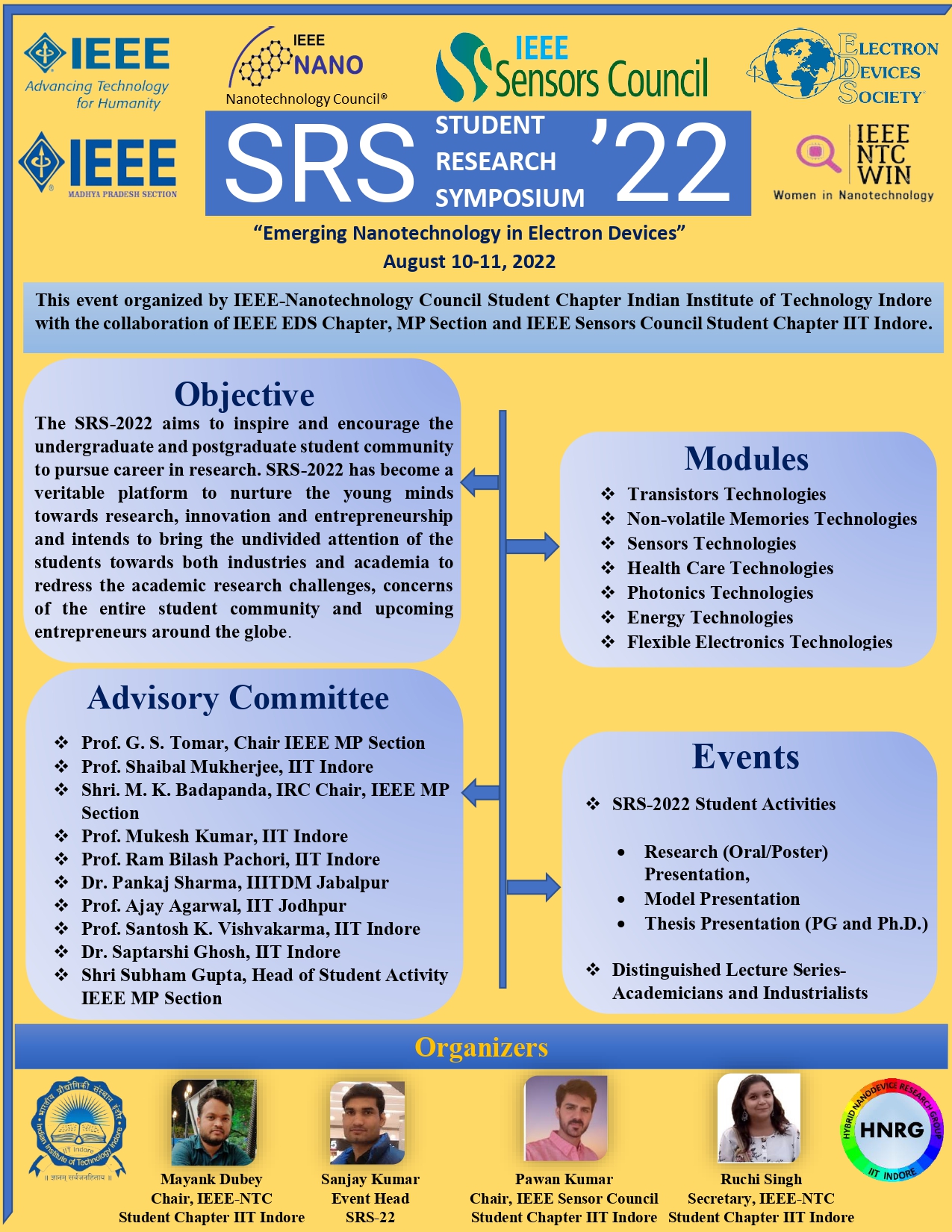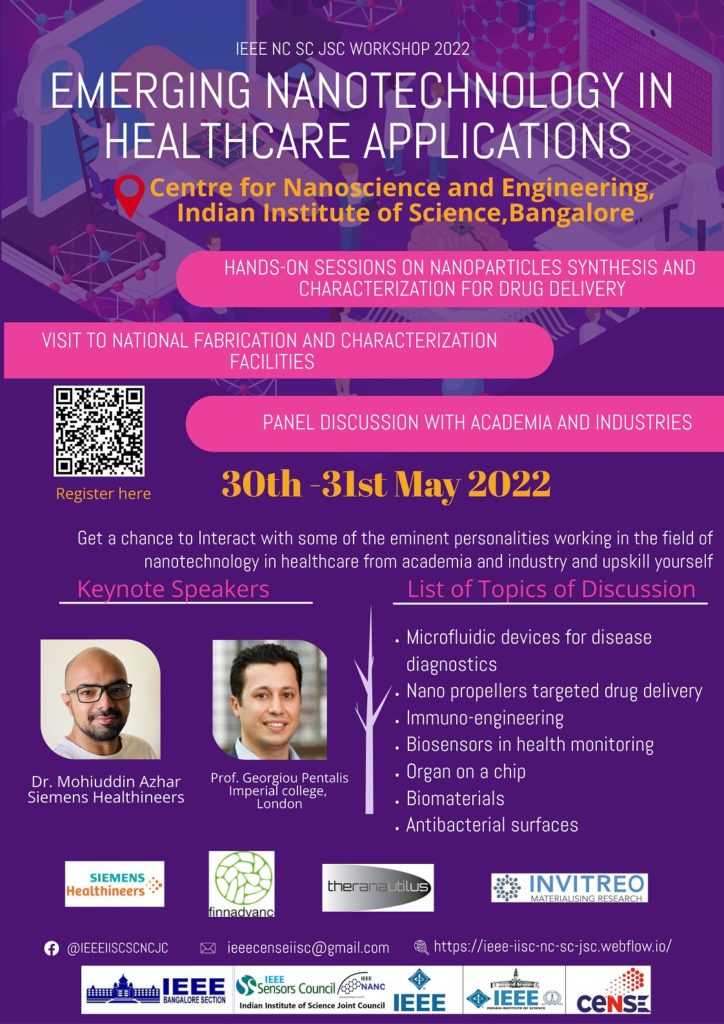Download RFP (PDF)
Deadline 1-May-22
Call for proposals: The IEEE Nanotechnology Council is requesting proposals for 2022 Summer School which should be organized along some of the themes typically covered in the call for abstracts of the yearly IEEE NANO meeting, the flagship IEEE Nanotechnology Conference. These include a wide range of nanoscience and nanotechnology topics, encompassing nanorobotics; quantum and neuromorphic computing; nanobiomedicine; nanosensors and nanoactuators; nano-optics/photonics/optoelectronics; nanoelectronics, spintronics, and plasmonics; nanomagnetics; nano-acoustics; nanoenergy; nanoscale communications; modeling, simulation, and characterization of nanostructures and devices; nanofabrication, packaging, and nanomanufacturing; and nanomaterials.
The IEEE Summer School on Nanotechnology should be geared towards senior undergraduates, graduate students, post-docs, and researchers and practitioners could deepen and broaden their skills in nanoscience and nanotechnology. Based on the success of the previous Summer Schools, it is expected that the attendance at the school should be around 50 to 100 participants. The main objective is to stimulate future generations to stay abreast of these rapidly evolving fields, and to foster participation in the adventure of research that will lead to the next generation of nanopioneers.
Dates and Length: The IEEE Summer School on Nanotechnology will be held by the Fall of 2022. The length of each summer school has typically been a minimum of 3 days to 1 week. COVID-19 has had a huge impact on conferences and meetings in 2020-2021 as most, if not all, talks and lectures have moved online. We expect 2022 to continue the trend of virtual meetings and discussions. As such, virtual Summer School of 1 or 2 days are acceptable. Although we have retained the name “summer school”, the date of the school is not restricted to the summer season (but must occur by 1-Dec).
Format: A successful summer school will consist of lectures, seminars, discussions, and visits to local academic and industrial organizations. Virtual lectures will be given by international scholars working in the areas of nanoscience and nanotechnology and focusing on a central theme among the typical topics covered during the IEEE Nano flagship conference.
Funding: The IEEE Nanotechnology Technical Council is able to provide up to US$5K of funding for the summer school, to be used for such expenses to support the school. Local organizers need to provide partial support as well, and the participants (or their labs or supervisors) may need to pay registration (tuition) fees to compensate for inviting lecturers.
Benefits to Participants: In addition to acquiring an organized view of an important area of nanotechnology, the summer school participants will be able to virtually interact with peer researchers and international scholars (especially young scientists) to discuss hot topics and on-going research, and also to experience local industry and culture.
You are encouraged to submit a proposal to hold a 2022 Virtual IEEE Summer School on Nanotechnology. If the proposal is approved, the IEEE Nanotechnology Council will provide upon request a financial contribution to support the initiative. The co-funded amount depends on the available budget, the number of financed proposals and the soundness of the school budget, but will not exceed US$5,000. We recall that organizers can take advantage of other initiatives, e.g., the IEEE Nano Distinguished Lecture Program to further support the school (related regulations apply).
The IEEE Summer School Subcommittee will review received proposals based on
- The quality of the proposed technical program and topic balance
- The soundness of the budget
- The length of the school
- The geographical balance of all funded summer schools (for future schools).
In writing your proposal, please address the following aspects:
- Aim and theme.
- Lectures and lecturers. Indicate if lecturers have agreed to participate.
- Tentative program and schedule.
- Local organizer(s). Brief bios of the School director and leadership.
- Registration. Tuition.
- Budget and financial sponsor(s). Expected number of participants.
Important Dates:
- Eligible period: September to December, 2022
- Deadline for submitting the proposal: 1 May 2022
- Notification of the outcome of the review process: 1 June 2022
Please submit your proposal to the Summer School Subcommittee Chair, Prof. Lixin Dong at l.x.dong@cityu.edu.hk. Potential hosts are encouraged to contact the subcommittee to express their interest, and to work with the subcommittee so as to strengthen their proposals.


